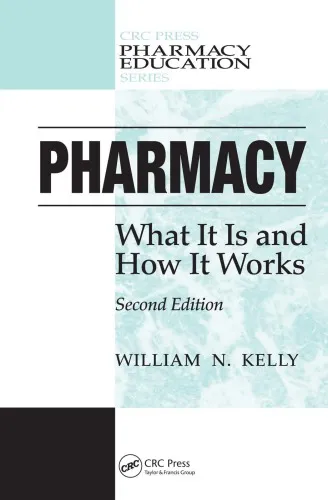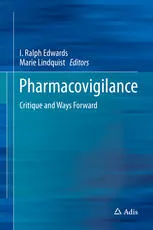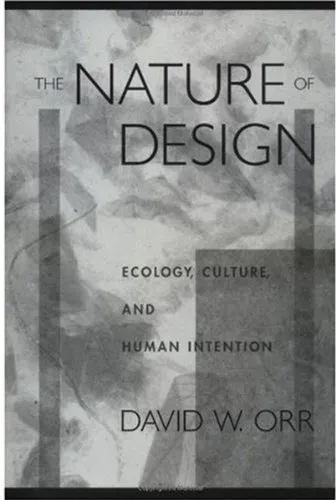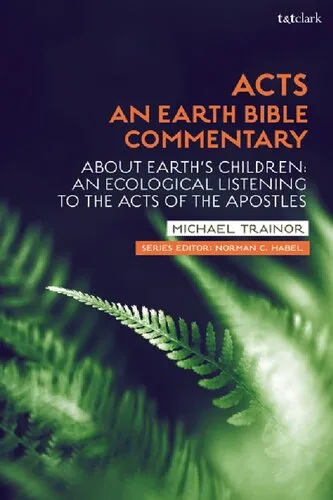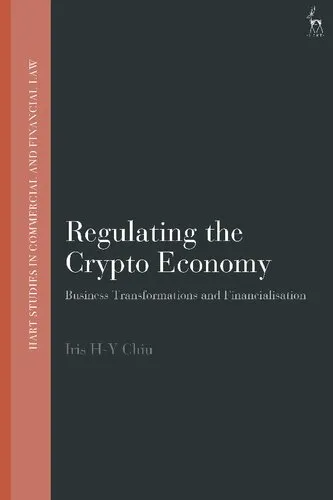Ecological Models for Regulatory Risk Assessments of Pesticides: Developing a Strategy for the Future (Society of Environmental Toxicology and Chemistry)
4.5
بر اساس نظر کاربران

شما میتونید سوالاتتون در باره کتاب رو از هوش مصنوعیش بعد از ورود بپرسید
هر دانلود یا پرسش از هوش مصنوعی 2 امتیاز لازم دارد، برای بدست آوردن امتیاز رایگان، به صفحه ی راهنمای امتیازات سر بزنید و یک سری کار ارزشمند انجام بدینکتاب های مرتبط:
معرفی کتاب "Ecological Models for Regulatory Risk Assessments of Pesticides: Developing a Strategy for the Future"
کتاب "Ecological Models for Regulatory Risk Assessments of Pesticides: Developing a Strategy for the Future" به قلم گروهی از متخصصان برجسته در حوزه بومشناسی، سمشناسی و مدلسازی، یکی از منابع مهم و جامع در زمینه ارزیابی خطرات زیستمحیطی آفتکشها است. این کتاب که از سوی Society of Environmental Toxicology and Chemistry منتشر شده است، به بررسی و توسعه استراتژیهای آینده برای استفاده از مدلهای بومشناختی در ارزیابی خطرات پرداخته و به پرسشهای کلیدی در این زمینه پاسخ میدهد.
خلاصهای جامع از کتاب
این کتاب بهطور مفصل رویکردهای مختلف استفاده از مدلهای بومشناختی برای ارزیابی خطرات آفتکشها را مورد بحث قرار میدهد. هدف اصلی نویسندگان، ارائه استراتژیهایی است که قابلیت کاربرد در فرآیندهای نظارتی و قانونی را داشته باشند. بخش آغازین کتاب به مفاهیم پایه در مدلسازی Ecological Models پرداخته و خوانندگان را با اصول اولیه این روشها آشنا میکند. سپس، رویکردهای نوآورانه و چالشهایی که در این حوزه وجود دارند نظیر پیچیدگی سیستمهای زیستی و عدم قطعیتهای ناشی از تغییرات اکوسیستمها، بررسی میشوند. هر فصل از کتاب حاوی بررسیهای موردی (Case Studies) است که نشان میدهند چطور مدلهای Ecological میتوانند در پیشبینی اثرات آفتکشها در سطح فردی، جمعیت، و اکوسیستم مورد استفاده قرار گیرند.
در نهایت، کتاب بر اهمیت همکاری بینالمللی در میان پژوهشگران، تصمیمگیران، و قانونگذاران تأکید داشته و نقش مدلهای بومشناختی را در دستیابی به اهداف توسعه پایدار برجسته میکند.
نکات کلیدی کتاب
- ارائه رویکرد سیستماتیک برای استفاده از Ecological Models در فرآیند های نظارتی
- بررسی چالشها و فرصتهای استفاده از مدلسازی در ارزیابی ریسک آفتکشها
- تأکید بر نقش همکاری بینالمللی و میانرشتهای در تحقیقات بومشناختی
- ارزیابی اثرات مخرب آفتکشها در سطوح جمعیت و اکوسیستم
- پیشنهاد راهکارهایی برای بهبود دقت و قابلیت پیشبینی مدلهای موجود
برخی نقلقولهای مشهور از کتاب
"Models are not just tools for prediction; they offer a framework for understanding ecological interactions."
"The complexity of ecosystems is both the greatest challenge and the driving inspiration behind developing ecological models."
چرا این کتاب اهمیت دارد؟
اهمیت این کتاب به دلیل ارائه دستورالعملهای عملی و علمی در زمینه استفاده از مدلهای بومشناختی برای ارزیابی خطرات زیستمحیطی و تأثیرات بلندمدت آفتکشها بر اکوسیستمها است. نویسندگان، با ارائه یک چشمانداز جامع و دقیق، به تقویت سیاستگذاریهای زیستمحیطی و بهبود روشهای ارزیابی کمک میکنند. همچنین، این کتاب منبعی ارزشمند برای پژوهشگران، سیاستگذاران و دانشجویان علاقهمند به مدلسازی بومشناختی و ارزیابی خطرات آفتکشها به شمار میآید.
با توجه به چالشهای جهانی تغییرات اقلیمی و افزایش نگرانیهای زیستمحیطی، این کتاب نقش مهمی در تربیت متخصصان آینده و پیشبرد تحقیقات علمی در این عرصه ایفا میکند.
Introduction
"Ecological Models for Regulatory Risk Assessments of Pesticides: Developing a Strategy for the Future" is a pivotal text that addresses the critical need for innovative and reliable approaches in evaluating the ecological risks posed by pesticides. Written by a team of distinguished scientists, this book provides a comprehensive and forward-thinking framework to incorporate ecological modeling into regulatory risk assessments. The work is rooted in the shared objective of balancing the undeniable benefits of pesticides in modern agriculture with the need to safeguard ecosystems and biodiversity from unintended harm.
Bridging the gap between science and policy, this book emerges as a foundational resource for regulators, researchers, industries, and stakeholders looking for practical, scientifically robust tools in a complex and evolving environmental landscape. It reflects the ongoing efforts to ensure pesticide regulations are equipped to navigate current and future challenges with integrity, precision, and effectiveness.
Detailed Summary
The book offers a roadmap for how ecological models can be utilized as part of regulatory frameworks for pesticide risk assessments. It explores the strengths, limitations, and uncertainties of using these models, emphasizing their relevance in predicting potential ecosystem-level impacts of pesticide use. The contributors discuss state-of-the-art methodologies and provide detailed examples of how ecological modeling improves the accuracy and reliability of risk predictions.
The structure of the book ensures a logical progression, introducing foundational concepts of ecological modeling and extending to practical guidelines for their implementation in regulatory scenarios. Chapters address the challenges of translating complex environmental processes into models, the validation and standardization of models for regulatory use, and strategies to integrate ecological risk assessments into existing policies.
Special emphasis is placed on a holistic approach that accounts for ecological complexity, variability, and long-term consequences. Additionally, the book underscores collaboration between model developers, regulatory authorities, and decision-makers, reinforcing that ecological models are essential tools for minimizing risks to non-target organisms, ecosystems, and ecosystem services.
Key Takeaways
- Ecological modeling represents a paradigm shift in how pesticide risks are assessed, fostering better protection for biodiversity and ecosystem health.
- The importance of standardizing model validation to ensure reliability and reproducibility in pesticide risk evaluation is thoroughly addressed.
- The book highlights the application of ecological models in both local and landscape-level risk assessments, bridging the gap between science and practice.
- Collaboration among interdisciplinary teams is vital to minimize model uncertainties and to ensure their relevance for regulatory purposes.
- A call to action for integrating ecological and socio-economic factors into future regulatory frameworks for pesticides.
Famous Quotes from the Book
"The use of ecological models in pesticide risk assessments is not merely an option, but a necessity for ensuring sustainable agricultural practices in a changing world."
"Understanding the complex interplay of biotic and abiotic factors in ecosystems is the cornerstone of predicting the true impacts of pesticide use."
Why This Book Matters
With increasing global awareness about environmental sustainability, this book fills a critical gap in scientific literature by focusing on the role of ecological models in regulatory decision-making. Conventional approaches to pesticide risk assessments often overlook the intricate nature of ecosystems and their resilience capacities. By advocating for the inclusion of ecological modeling, the book introduces a scientific revolution, enabling predictions and insights that are more aligned with ecological realities.
This book matters because it equips policymakers, regulatory agencies, and scientists with the tools they need to make informed decisions, ensuring that pesticide use is safe both for the environment and for human welfare. It fosters a deeper understanding of the interdependencies within ecosystems and offers a strategic approach to minimize unintended harmful impacts, supporting both environmental health and agricultural productivity. In doing so, it serves as an indispensable guide for shaping futures that are both sustainable and secure.
دانلود رایگان مستقیم
شما میتونید سوالاتتون در باره کتاب رو از هوش مصنوعیش بعد از ورود بپرسید
دسترسی به کتابها از طریق پلتفرمهای قانونی و کتابخانههای عمومی نه تنها از حقوق نویسندگان و ناشران حمایت میکند، بلکه به پایداری فرهنگ کتابخوانی نیز کمک میرساند. پیش از دانلود، لحظهای به بررسی این گزینهها فکر کنید.
این کتاب رو در پلتفرم های دیگه ببینید
WorldCat به شما کمک میکنه تا کتاب ها رو در کتابخانه های سراسر دنیا پیدا کنید
امتیازها، نظرات تخصصی و صحبت ها درباره کتاب را در Goodreads ببینید
کتابهای کمیاب یا دست دوم را در AbeBooks پیدا کنید و بخرید
1278
بازدید4.5
امتیاز0
نظر98%
رضایتنظرات:
4.5
بر اساس 0 نظر کاربران
Questions & Answers
Ask questions about this book or help others by answering
No questions yet. Be the first to ask!





